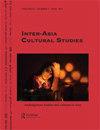翻译宠物人:“乳白色小狗”的想象与新自由主义的主体性
IF 0.4
4区 社会学
Q4 ANTHROPOLOGY
引用次数: 0
摘要
摘要自2017年以来,“奶狗”一词作为一个俚语在中国网络空间流行起来,象征着一个年轻、可爱、可爱的男性形象,就像小狗一样。受韩流4.0和日本、韩国流行文化中盛行的下下浪漫主题的影响,这种现象导致了“大龄女性-小龄男性”关系模式的出现,成为中国数字娱乐(尤其是电视剧)的一种新趋势。在这种情况下,年轻的“宠物”男友通常被称为“乳白色的小狗”。本文考察了“宠物人”形象在东亚地区的跨国流动和文化翻译,认为“乳白色小狗”的身体修辞标志着一种中国变体的moe文化,代表着男性身体的商品化。本文对最近两部属于爱情题材的中国电视剧《寻找自我》和《理性人生》进行了批判性分析,并将它们与韩剧《雨中寻》进行了比较。本文旨在通过对比研究,找出这些电视剧中宠物男阳刚之气的鲜明中国特色。通过运用女权主义和治理理论,本研究探讨了这些戏剧中的性别动态如何在后社会主义中国的新自由主义主体性和父权性别规范的弹性之间进行协商。网上的评论指出这部剧和《我在休假》有很多相似之处,包括主角的性格、有趣的家庭成员、女主角家里的一只心爱的狗,以及一个迷恋女主角的年长男人的存在,他假装向女主角提供感情建议。更多详细信息,请参见https://star.ettoday.net/news/1634057(访问日期:2022年5月19日)“霸道CEO”指的是网络小说和电视剧中改编的灰姑娘故事的一个亚类型。故事围绕着一个富有而霸道的年轻人和一个谦逊的女孩之间的爱情故事展开。参见Song (Citation2023)对这一子类型的讨论。3 https://movie.douban.com/review/12207102/(访问日期:2022年6月8日)《花上的男孩》最初是神尾洋子在1992-2008年间连载的日本漫画系列。这部电影在日本、韩国、台湾、中国大陆和泰国等多个东亚国家被改编成电影和电视剧,成为泛东亚男性柔美美学的象征。作者简介:宋耿,香港大学中文学院翻译项目主任,副教授。他被选为2022/23学年美国国家人文中心卢斯东亚学者。她的研究兴趣跨越跨文化、跨学科和跨历史的视角,研究中国的性别和流行文化,重点关注中国男性气质、电视和民族主义等主题。他的著作包括《脆弱的学者:中国文化中的权力与男子气概》(2004)、《当代中国的男性与男子气概》(与Derek Hird合著,2014)、《电视中国性:性别、民族与主体性》(2022)等,并在《现代中国》、《中国学刊》、《男性与男子气概》、《亚洲研究评论》、《现代中国文学与文化》、《南Nü》等期刊上发表了大量研究论文。本文章由计算机程序翻译,如有差异,请以英文原文为准。
Translating the pet man: the “milky puppy” imaginary and neoliberal subjectivity
ABSTRACTThe term “milky puppy” (xiao naigou) gained popularity as a slang term in Chinese cyberspace since 2017, symbolizing a young, endearing, and adorable male figure, much like the perception of a puppy. This phenomenon, influenced by Hallyu 4.0 and the toshishita romantic motif prevalent in Japanese and Korean popular cultures, has led to the emergence of an “older woman-younger man” relationship pattern as a new trend in Chinese digital entertainment, particularly TV dramas. In this context, the younger, “pet” boyfriend is commonly referred to as a “milky puppy.” This article investigates the transnational flow and cultural translation of the Pet Man imaginary in East Asia, arguing that the bodily rhetoric of “milky puppy” signifies a Chinese variant of moe culture and represents the commodification of the male body. The article presents critical analyses of two recent Chinese TV dramas within this romantic subgenre, Find Yourself and The Rational Life, and compares them to the South Korean drama Something in the Rain. Through this comparative study, the article aims to identify distinctive Chinese characteristics in the portrayal of pet man masculinity in these dramas. By engaging with feminist and governmentality theories, the study explores how gender dynamics in these dramas negotiate between neoliberal subjectivity and the resilience of patriarchal gender norms in postsocialist China.KEYWORDS: Chinamasculinitycultural translationEast AsiaTV dramaneoliberal subjectivity Notes1 Online commentaries pointed out many similarities between the drama and I’m Taking the Day Off, including the character of the protagonists, funny family members, and a beloved dog in the female protagonist’s family, as well as the existence of an older man who has a crush on the female protagonist and approaches her on the pretense of offering her relationship advice. For more details, see https://star.ettoday.net/news/1634057 (accessed May 19, 2022).2 The “bossy CEO” (badao zongcai) refers to a subgenre of revamped Cinderella stories in online fiction and TV dramas. The stories center on a love story between a wealthy and domineering young man and a humble girl. See Song (Citation2023) for a discussion of this subgenre.3 https://movie.douban.com/review/12207102/ (accessed June 8, 2022).4 Boys Over Flowers is originally a Japanese manga series by Yoko Kamio serialized during 1992–2008. It has been adapted into films and TV dramas in a variety of East Asian countries, including Japan, South Korea, Taiwan, Mainland China, and Thailand, and has become an icon of the Pan-East Asian aesthetic of male effeminacy.Additional informationNotes on contributorsGeng SongGeng Song is an Associate Professor and Director of the Translation Program in the School of Chinese at the University of Hong Kong. He has been selected as a Luce East Asia Fellow at the National Humanities Centre, USA, for the 2022/23 academic year. Song’s research interests span transcultural, transdisciplinary, and transhistorical perspectives on gender and popular culture in China, with a focus on topics such as Chinese masculinity, television, and nationalism. His publications include The Fragile Scholar: Power and Masculinity in Chinese Culture (2004), Men and Masculinities in Contemporary China (co-authored with Derek Hird, 2014), Televising Chineseness: Gender, Nation, and Subjectivity (2022), as well as numerous research articles published in journals such as Modern China, The China Journal, Men and Masculinities, Asian Studies Review, Modern Chinese Literature and Culture, and Nan Nü.
求助全文
通过发布文献求助,成功后即可免费获取论文全文。
去求助
来源期刊

Inter-Asia Cultural Studies
Multiple-
CiteScore
0.90
自引率
20.00%
发文量
22
期刊介绍:
The cultural question is among the most important yet difficult subjects facing inter-Asia today. Throughout the 20th century, worldwide competition over capital, colonial history, and the Cold War has jeopardized interactions among cultures. Globalization of technology, regionalization of economy and the end of the Cold War have opened up a unique opportunity for cultural exchanges to take place. In response to global cultural changes, cultural studies has emerged internationally as an energetic field of scholarship. Inter-Asia Cultural Studies gives a long overdue voice, throughout the global intellectual community, to those concerned with inter-Asia processes.
 求助内容:
求助内容: 应助结果提醒方式:
应助结果提醒方式:


